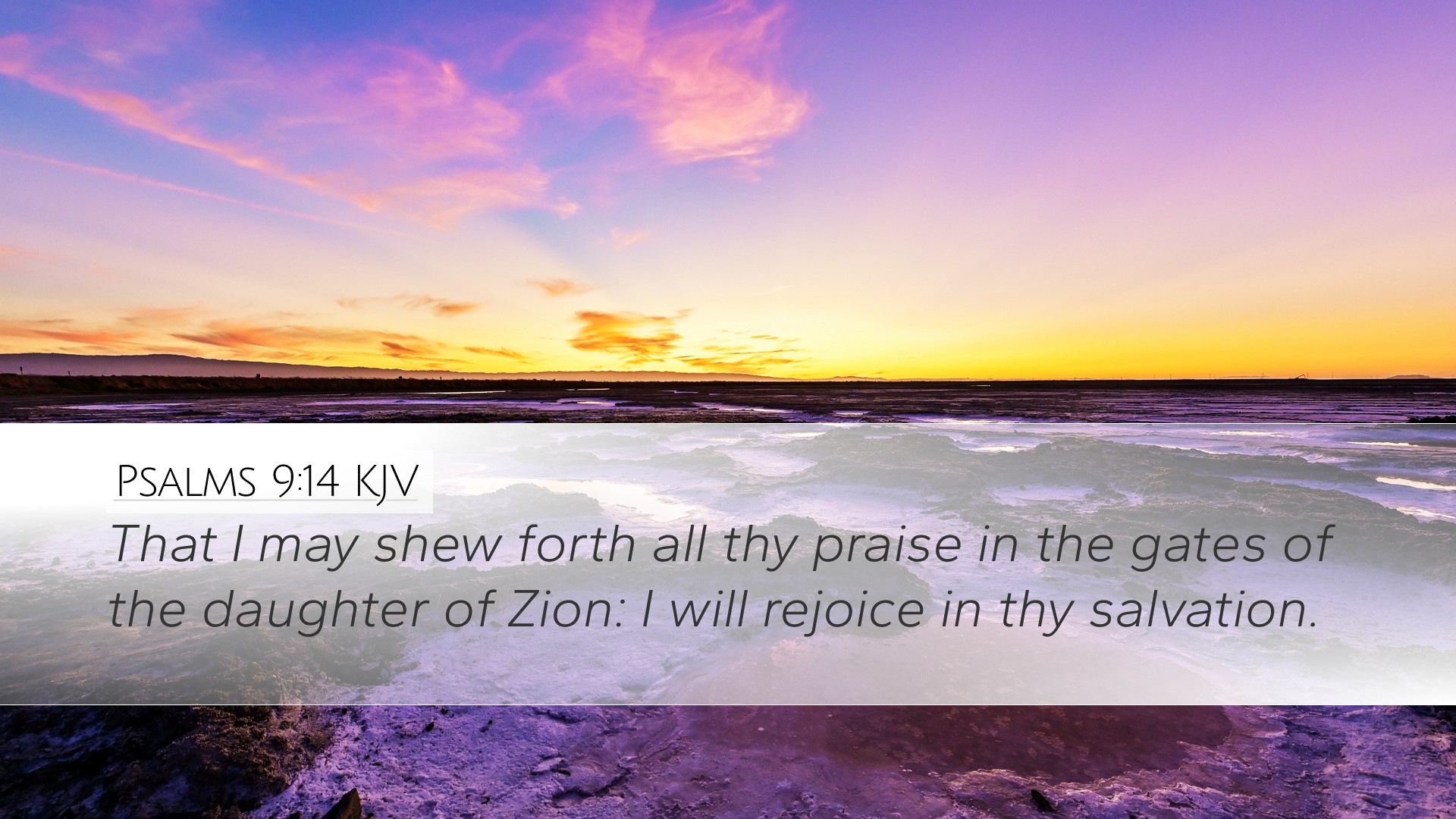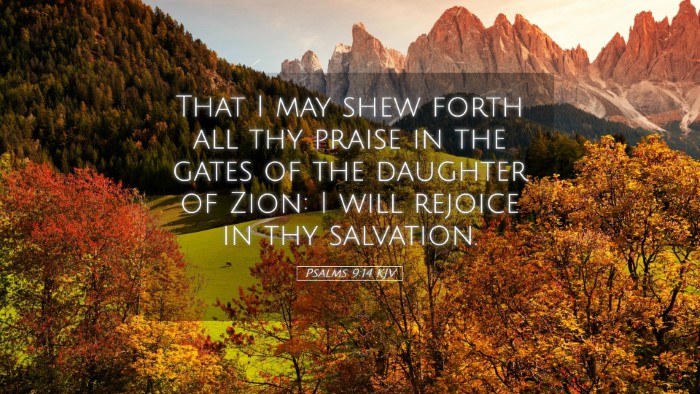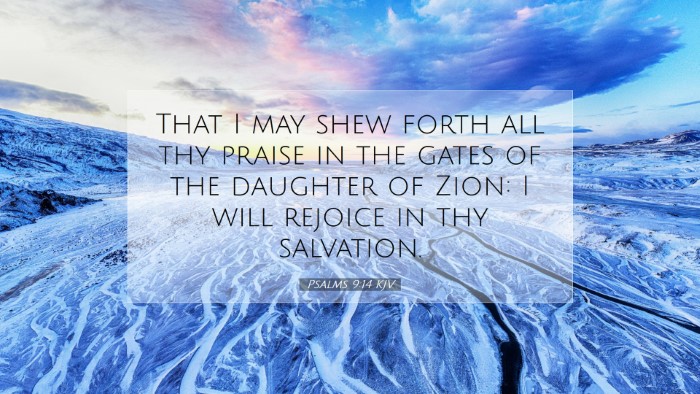Psalms 9:14 Commentary
Verse: "That I may show forth all thy praise in the gates of the daughter of Zion: I will rejoice in thy salvation."
Introduction
Psalms 9:14 encapsulates a profound declaration of praise and a celebration of divine salvation. In the context of the psalm, the psalmist expresses a desire to publicly testify about God’s works, emphasizing the joy that derives from salvation. This commentary seeks to delve into various insights from notable public domain scholars such as Matthew Henry, Albert Barnes, and Adam Clarke.
Literal Interpretation
This verse suggests the psalmist's intention to proclaim God's praises within the public arenas (the gates) of the city, particularly referencing Zion, the city of God. The gates often symbolize places of judgment and decision but also offer a representation of communal worship and declaration of God’s deeds among His people.
Key Themes
- Public Praise: The psalmist emphasizes that praise should not be restricted to private or individual moments but should be made public. Here, the idea of "sharing" God’s goodness resonates strongly.
- Rejoicing in Salvation: The connection between praise and salvation is paramount. The salvation of God is the source of joy and is a reason for celebration among the faithful.
- Zion's Significance: Zion represents both the physical city of Jerusalem and a spiritual state of God’s people, denoting God’s presence and His promise to His people.
Insights from Matthew Henry
Matthew Henry points to the psalmist's commitment to expressing the wonders of divine providence in salvation. He notes that the term "gates" holds vital significance, being both a literal and metaphorical representation of strength and security associated with the city. In context, Henry emphasizes that the psalmist recognizes the importance of sharing the testimony of God’s goodness to inspire faith among others.
Henry also highlights the balance between personal experience and public declaration, suggesting that one's internal joy must find expression outwardly among the community of believers. The act of proclaiming God’s acts of salvation serves to encourage not only the psalmist but also the people of Zion.
Insights from Albert Barnes
Albert Barnes elaborates on the phrase "show forth all thy praise," interpreting it as a commitment to recount God’s marvelous deeds. He believes that this reflects a heart overflowing with gratitude. Furthermore, he emphasizes the necessity of being public in such expressions, stating that the testimony of one’s personal salvation ought to be a communal experience.
Barnes also reflects on the notion of salvation itself as a central theme, dissecting its implications for the believer’s life. He suggests that rejoicing in salvation is not merely an individual affair, but one that should resonate throughout the community. The communal aspect of praise strengthens both the believer and the body of believers.
Insights from Adam Clarke
Adam Clarke offers a detailed exegesis of the psalm, linking the verse to the themes of victory and Divine intervention. He emphasizes that the act of praise is closely tied to the acknowledgment of God’s help in times of need. Clarke interprets "the daughter of Zion" as an affectionate reference to the people of Jerusalem, underscoring the intimate connection between the psalmist and his community.
Clarke also draws attention to the futility of silent gratitude, arguing that thankfulness to God requires expression. He suggests that the public declaration of God’s works serves a dual purpose: it glorifies God and strengthens the faith of those who hear it.
Theological Significance
This verse holds significant theological implications for understanding the relationship between worship, community, and salvation. It highlights how the experience of salvation is intended not only for personal edification but as a catalyst for corporate worship. The necessity of praising God publicly aligns with the biblical pattern of testimony found throughout scripture.
Application for Today
- Encouraging Testimony: Churches today can foster an environment that encourages believers to share their testimonies of faith and salvation, reinforcing communal ties and collective worship.
- Public Worship: Consideration should be given to how public praise can be woven into both personal and collective worship settings, fostering a culture of joy in the church community.
- Humanizing God’s Works: Highlighting stories of personal salvation can humanize theological concepts, making them relatable for congregation members.
Conclusion
Psalms 9:14 serves as a poignant reminder of the interplay between individual faith and public expression of that faith within the community. The insights gleaned from the commentaries of Matthew Henry, Albert Barnes, and Adam Clarke collectively encourage believers to engage in the act of praise and declare God’s greatness in their lives. Such declarations not only honor God but also edify fellow believers, creating a vibrant tapestry of faith that reflects the richness of God’s salvation in our lives.


